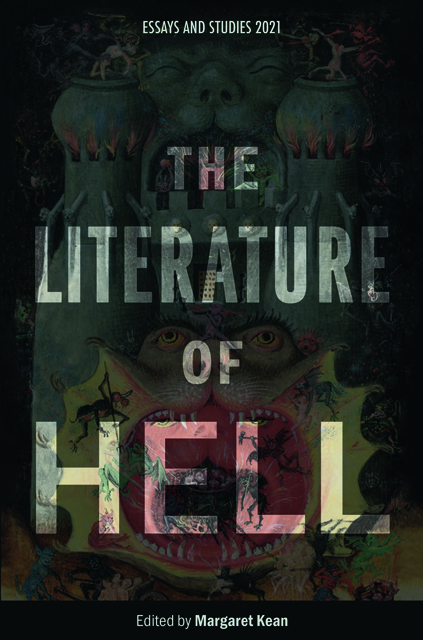Whirlpools, Black Holes and Vortical Hells in Literature
Published online by Cambridge University Press: 14 January 2023
Summary
On 10 April 2019, the Event Horizon Telescope project published an image based on data collected from eight radio observatories of the supermassive black hole in galaxy Messier 87. In Brussels, at one of five simultaneous press conferences held internationally to announce the event, Heino Falcke introduced the image by invoking the cultural associations of a black hole:
if you know the story behind that image, you’re looking at the region that we’ve never looked at before, the region we cannot really imagine being there. It feels like really looking at the gates of hell, at the end of space and time; the event horizon; the point of no return. That is awe-inspiring, to me at least, but it’s also important for physics.
Within this cultural digression of only twenty-five seconds, Falcke touched on several connotations that the phenomenon of black holes have accrued within a few decades of theoretical discussion and indirect observation: they are unimaginable, a portal to hell, the boundary of the physical universe, and a microcosm of the chronological end of the universe. Falcke’s final point is that black holes inspire awe. This locates them in the realm of the sublime. The black hole is one of the more recently recognised species of naturally occurring vortices that comprise a venerable tradition of metaphorical resonance in literary and cinematic texts. The cultural associations listed by Falcke frequently collocate with one another in such texts. This chapter focuses on how these associations combine in texts about one particular type of vortex, the whirlpool. In the later twentieth century, the metaphorical connotations of the whirlpool became applied, virtually wholesale, to the black hole. This chapter limits itself to a series of close readings of literary depictions of whirlpools’ connections to the dislocatory depths of hell that anticipate and inform, if not directly inspire, later depictions of black holes.
Charybdis and Hell
Rather than taking the nekyia (evocation of the dead) in Book XI of the Odyssey as the starting point of an exploration of hell, this chapter considers the series of episodes that occur upon Odysseus’ return from the house of Hades.
- Type
- Chapter
- Information
- The Literature of Hell , pp. 159 - 188Publisher: Boydell & BrewerPrint publication year: 2021



